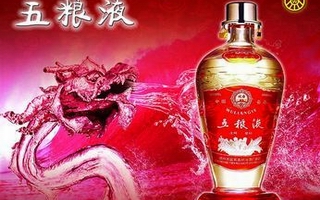 Wuliangye Yibin Co has made a big investment in advertising in 70 overseas television markets, but was accused by insiders of not using its money in the appropriate place, according to Daily Economic News.
Wuliangye Yibin Co has made a big investment in advertising in 70 overseas television markets, but was accused by insiders of not using its money in the appropriate place, according to Daily Economic News.An insider pointed out that Wuliangye’s advertisement campaign in the international market has made no impact.
A report on Sichuan liquor wholesale price trends by the National Bureau of Statistics, Sichuan Survey Team, shows that Maotai, Wuliangye, Guojiao 1573 and other high-end wines have suffered a general price decline in the province in the first two months of the year.
“To be honest, the sale of Wuliangye’s high-end liquor is not as good as last year due to the impact of some policies,” Wuliangye’s chairman Tang Qiao said earlier this year.
To get out of the fix, Wuliangye is changing both the product structure and the sales channels. Opening up the overseas market has become the focus this year.
On the one hand, Wuliangye will launch different kinds brand promotion activities such as overseas wine exhibitions to enhance consumer awareness of the brand; on the other hand, it will put much efforts in opening overseas flagship stores and looking for strategic partners to build an overseas sales system.
“Sales of Wuliangye’s original main varieties of liquor are showing a trend of stagnation, so internationalization is a strategic initiative," said Zhao Xiang, a liquor industry expert.
The insider said that Wuliangye’s move is to maintain its high-end brand image. “Wuliangye is currently concentrating on the sales of middle brand wine, which may to some extent damage the brand image. Overseas promotion has thus become a way to maintain its image of world famous high-end wine.”
In recent years, Wuliangye has increased its investment in North America, and central and eastern Europe.
“In the long term, internationalization is the inevitable trend of development for China's national industry, but the effect is not good in the wine industry,” Zhao Youxiang, a wine industry expert, said.
Judging from the current situation, the influence of domestic liquor in the international market is very weak. Maotai and Wuliangye’s overseas revenue contribution is far less than in the domestic market. The revenue of Wuliangye in 2011 was 20.35 billion yuan, in which overseas revenue only accounted for 1.8 percent.
According to liquor expert Tie Li, the effect of overseas market to save high-end domestic liquor is very limited. “The barriers for internationalization of domestic liquor at present comes from three aspects: the big difference of food culture between the East and West, another big difference between domestic liquor and Western wine, low recognition of Chinese food safety from the West,” Tie said.
“Although the great differences in food culture and drinking habits between the East and West make a hard and long road for the internationalization of Chinese liquor, we have to go out sooner or later. The earlier action, the earlier harvest,” Wuliangye spokesman Peng Zhi Fu said.





